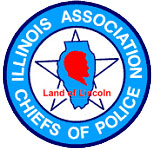
Governor Pat Quinn was in Tinley Park on August 22, 2012 for a bill-signing ceremony hosted by the Illinois Association of Chiefs of Police (ILACP).
He signed legislation from the General Assembly that directs funds received from DUI convictions to local law enforcement agencies for alcohol-related crime prevention and enforcement.
The bill Gov. Quinn signed was HB 5021. It amends 625 ILCS 5/11-501.01:
[M]oneys in the State Police DUI Fund and the Secretary of State Police DUI Fund shall be used for enforcement and prevention of driving while under the influence of alcohol, other drug or drugs, intoxicating compound or compounds or any combination thereof, including but not limited to the purchase of law enforcement equipment and commodities that will assist in the prevention of alcohol related criminal violence throughout the State; police officer training and education in areas related to alcohol related crime, including but not limited to DUI training; and police officer salaries, including but not limited to salaries for hire back funding for safety checkpoints, saturation patrols, and liquor store sting operations.
Click here to download the bill.
The debate is whether the law gives police departments a financial incentive to stop drivers where probable cause is questionable. The fact is that local police departments are funded by their municipalities, and due to the recession, these municipalities are providing less money for operating budgets.
Does this bill give police officers a financial reason to seek out more arrests for DUI? While everyone would agree that we want officers to arrest guilty people, the problem is that the increase in DUI stops would probably impact drivers who are not necessarily guilty of driving under the influence.
Those people whose guilt is marginal would be more likely to be stopped and arrested. That’s a probable cause problem.
It is reported that about 1,200 police chiefs attended the conference in Tinley Park from August 21-22.

